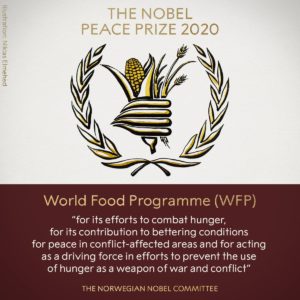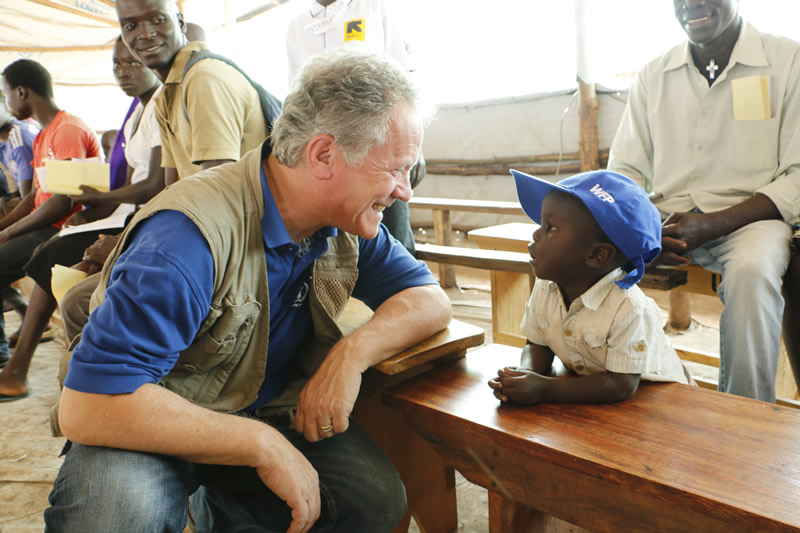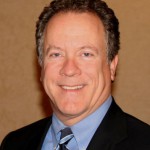By Andy Brack, editor and publisher | Hats off and hearty congratulations to Former Gov. David Beasley and the United Nations’ World Food Program that he leads. Just days ago, it won the Nobel Peace Prize for its work to feed the world’s hungry. Part of the prize’s international glory is a tribute to Beasley’s leadership. It’s something in which the whole state should take pride.
Beasley, who admitted to reporters that he was speechless after hearing the news, wrote on Twitter earlier today: “I struggle to put into words what the @WFP family is feeling right now. We are so touched by your overwhelming support. But it breaks my heart that millions of people are starving today. Let this #NobelPeacePrize2020 awaken the world to the suffering and struggle of so many.”
Three years ago after Beasley took the job that has taken him all over the world, we offered the following profile of what he’s been doing. It’s fitting to republish it today. From August 2017:
David Beasley is having the time of his life.
The former South Carolina governor, who has spent almost two decades since being in office in mission work to help people around the world, now is executive director of the United Nations’ World Food Programme.
“The good news is we’re feeding 80 million people on any given day in 80 countries,” he said in an exclusive interview on the way to Central America. “The bad news is it’s getting worse out there – the famine, the droughts, the conflicts.”
Nominated to lead the world’s leading humanitarian organization for fighting hunger by another former governor, (then) U.N. Ambassador Nikki Haley, the (then) 60-year-old Beasley first was elected to the S.C. House of Representatives in 1978 as a college senior. The Pee Dee native rose in the Democratic Party to become the House Speaker Pro Tem, only to switch to the Republican Party in 1991. Elected governor three years later, he pushed a conservative vision of solving social problems through wealth creation. While governor, companies made more than $16 billion in capital investments in the state as property and business taxes went down by more than $1 billion.
After losing a reelection bid, Beasley focused on international outreach work thanks to the security provided by his family’s banking business in the Pee Dee. In the past 10 years, he’s deepened relationships with leaders around the world and worked in more than 100 countries on projects to foster peace, reconciliation and economic progress.
Simply put, David Beasley is the Palmetto State’s version of Jimmy Carter – a leader who is making a larger difference on the world stage after years in public office.
“All of the darkness of the world can’t put out the smile on a face,” Beasley reflected. “This job brings humanity down to the core level. When you see a hungry person, you don’t see a Democrat or a Republican, a black or white. You see a brother or sister who is struggling to survive. That transcends politics. All you want to do is help them.”
 The World Food Programme, based in Rome, is a massive operation with 20 ships, 70 aircraft and 5,000 trucks that move food at the direction of more than 15,000 staffers across the globe.
The World Food Programme, based in Rome, is a massive operation with 20 ships, 70 aircraft and 5,000 trucks that move food at the direction of more than 15,000 staffers across the globe.
Beasley, who has been heading the agency since the spring (of 2017), spends his time in the halls of governments asking for first-world countries to contribute more so the agency can buy more food. Part of his job is to get other countries to donate more. The United States picks up about 40 percent of the program’s $6 billion budget.
“We are facing the worst humanitarian crisis on the planet since World War II. Without funding, there is very little we can do.”
But Beasley also spends a lot of time in conflict-ridden countries like Syria, Yemen and Somalia.
“To do the job right, I believe I must be on the ground talking to the people who are helping and our WFP staff doing the work,” he said. “The job does have its difficulties. When we lack funds, our teams have to decide who eats and who does not. Basically, to decide who lives and who dies. With all the wealth in the world today, why should we be in that position?”
Beasley admits it’s hard not to get down in the dumps when he sees crippling conditions around the globe. But he focuses on the good things being accomplished every day.
“There is no greater calling in life than to help people in need,” the former governor said. “That is what motivates me, what wakes me up every single day.
“To help people who are on the brink of death recover; to see a child go from literally barely breathing to smiling and playing; to watch a village celebrate when food falls from the sky – who could not love a job like that?
“Yes, one minute you are heartbroken and in tears, but the next, you are laughing with great joy.”
- If you want to help fight world hunger, you can donate at WFP.org. Or you can download the app called ShareTheMeal.





 We Can Do Better, South Carolina!
We Can Do Better, South Carolina!

























Pingback: FOCUS: Beasley leads Nobel Prize-winning food program - Charleston Currents | Philanthropy Media Network